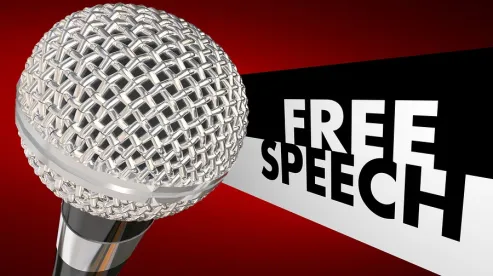Do as adversaries do in law, strive mightily, but eat and drink as friends.
William Shakespeare, The Taming of the Shrew, Act I, sc. 2
In the aftermath of the historic and divisive election, many of us welcome an end to the besiegement of ads, media commentaries, Facebook and Twitter postings, etc. that are not only uncivil, but in many cases just plain nasty.
The political climate of brinkmanship, rudeness, and lack of cooperation (let alone collaboration) appears to be increasingly reflected in the workplace. Collectively these behaviors are called “incivility,” and have become so prevalent that many scholarly studies have been conducted on the topic. Google “incivility in the workplace” or visit the Society for Human Resources Management (SHRM) website and you’ll get the idea.
What is “civil” and “uncivil” behavior in the workplace, and what are the legal and other implications of uncivil behavior?
“Civility” is a collection of positive behaviors that promote courtesy and respect. The word has its origins in the Latin word “civis,” which in Latin means citizen. Keith Bybee, the author of How Civility Works, put it this way in a 2019 NPR interview: “Civility is the baseline of respect that we owe one another in public life.”
To paraphrase the old Irish proverb by substituting “civility” for “diplomacy”, “Civility is telling someone to go to hell in such a way that they will look forward to the trip.”
On the flipside, what is “incivility”? One study describes it as “a low intensity deviant behavior with ambiguous intent to harm” (Anderson and Pearson, 1999). Other studies define it more thoroughly as bad or rude behavior, with diminished use of basic courtesies such as “please” and “thank you,” abrupt and curt language, especially when using technological communication, a lack of respect for leaders and colleagues, with behaviors including belittling, interrupting or ignoring others, spreading rumors or gossip, and sending “nasty grams” to co-workers. (Akella and Johnson, 2018, citing many other studies.)
Many employees appear to be under the impression that they have an absolute First Amendment right to say or send whatever they want to in the workplace. This is simply not true, especially in the private sector. Employers have the right and under some circumstances the duty to expect their employees to act toward one another with basic respect and courtesy. Unfortunately, email and social media have removed many of the “filters” that were previously in place in terms of the lack of ability to make an immediate and often not thought-out response, and that unfortunately has bled over to in-person communications. There are now unlimited opportunities for knee-jerk reactions that are not thought through before hitting the SEND button.
SHRM and other reputable sources report that numerous studies show that incivility in the workplace leads to lower production, higher turnover, lower profitability, poorer customer service and decreased morale.
So how might employers rein in on such behavior in the interest of maintaining a desirable workplace culture and mitigating liability? Some employers have addressed the problem of incivility by instituting Codes of Conduct designed to advise employees what is expected of them in terms of their interactions with one another. Of course, such Codes are not worth the space they take up on a network unless they are accompanied by commitment from leadership to communicate, train and enforce the Codes, and truly reflect the mores and values of the organization. Ideally, supervisors, who after all are responsible for enforcing Codes of Conduct on the “front lines”, should be involved in their creation and in all cases should be thoroughly trained regarding their contents and what to do in the event of a violation.
Codes of Conduct sometimes include other matters such as conflict of interest, gifts and gratuities, and use of Company resource policies, and are generally enforced through the Company’s disciplinary procedures.
From a legal standpoint, incivility is not generally regarded as in and of itself constituting illegal harassment or illegal conduct under discrimination laws, although it could and should be regarded as behavior which could easily escalate to that level if unchecked.
The coming days and weeks will tell us a lot about how people handle the inevitable fallout from the election, and of course a lot of that conversation will occur at the workplace. It’s important, even vital, to workplace harmony and even more important, to the fiber of who we are as a civilized nation to have those conversations in an atmosphere of mutual respect.




 />i
/>i
